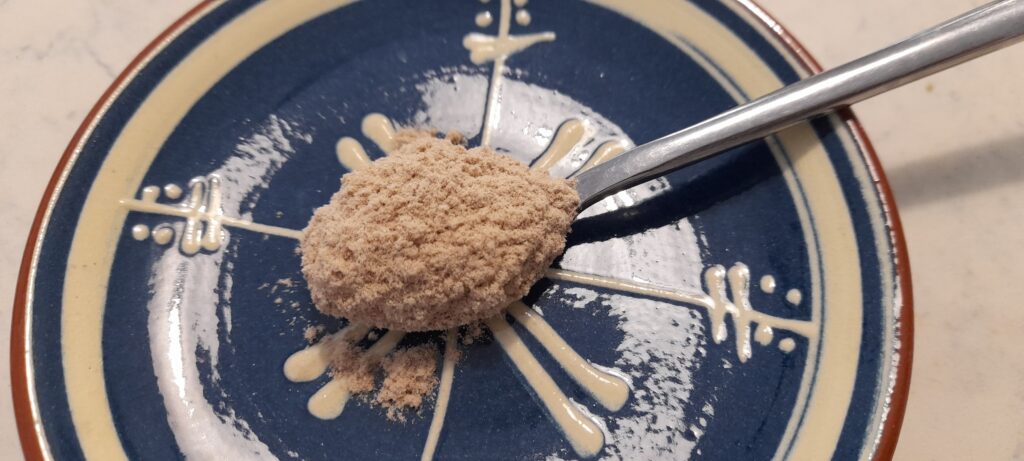Why be concerned about those tablets that keep your reflux at bay?
One of the things that can stop working so well in our bodies is our digestion – and heartburn can get REALLY uncomfortable REALLY regularly.
Take the problem to your GP and you’ll probably come out with a prescription for a PPI (some brand of a family of drugs called Proton Pump Inhibitor).
This class of drugs does a great job of stopping those horrid feelings associated with indigestion – burning in the chest (heartburn), nausea, burping, regurgitation, bitter taste, discomfort in upper abdomen and/or dry cough. They come under a range of trade names – such as Pantoprazole (Somac).
Put simply, these drugs stop the stomach from making its normal acid. Thus allowing for time for a possible stomach ulcer or inflammation to heal. Generally these drugs should be used for no longer than 4 to 6 weeks to achieve a certain goal.
That’s all very well if you’ve been diagnosed with an ulcer and need a few weeks of healing time. However, that’s not how these PPIs are commonly used.
According to 2019 guidelines, authorities agreed that high dose PPIs appeared to be over prescribed in Australia, for excessively long periods and particularly among older people.
Just one brand – Pantopraxole (Somac) ranks in the top 3 PBS drugs prescribed by Australian Doctors in 2023. And what I find in talking to my patients who have gut issues is that their GPs prescribe them for YEARS.
There can be severe consequences of taking this type of drug long term:
- mineral deficiencies like magnesium and zinc;
- reduced ability to breakdown ingested proteins;
- changes to your microbiome ( the ecosystem of good and bad bacteria and other organisms in your stomach and intestines) leading to mineral and vitamin deficiencies, immune problems and inflammation in your body generally;
- increased bad bacteria inhabiting your gut like Clostridium difficile, causing disease and damage in your colon.
What evidence do we have about the risks?
New technology is enabling researchers to investigate and quantify the issues of long-term PPI use. Here are a couple of recent studies:
Meta-analysis of the effects of proton pump inhibitors on the human gut microbiota
This 2023 meta analysis (collation of individual studies) of gut microbes using DNA sequencing reveals continuing concerns from scientists about the adverse effects of Proton Pump Inhibitors (PPIs). They found a reduction in certain species of good bacteria that help protect the gut from inflammation as well as moderating your immune system.
Systematic review: the effects of proton pump inhibitors on the microbiome,,,
Here’s what another 2020 meta analysis found:
“Conclusion: PPI use is associated with moderate alterations to upper and distal gut microbiota. The available data suggest that PPI-induced hypochlorhydria facilitates colonization of more distal parts of the digestive tract by upper gastrointestinal microbiota”
There’s enough evidence of harm to generate legal action
A current legal Class Action is being conducted by Shine Lawyers for people who believe they have been adversely affected by a range of PPIs. Their website states that the drugs under investigation include:
- Nexium or Nexium 24HR (or other drugs containing esomeprazole)
- Losec (or other drugs containing omeprazole)
- Somac (or other drugs containing pantoprazole)
- Pariet (or other drugs containing rabeprazole)
- Zoton FasTabs (or other drugs containing lansoprazole)
The range of alleged adverse effects linked to these drugs includes stomach cancer and severe kidney disease.
SO, what can you do to avoid these increasingly well-documented risks?
Do you suffer with these symptoms – or know that you have stomach ulcers or GORD (gastro-oesphageal Reflux disease) – and worry about what harm your long term medication may be doing?
You may be especially worried if you know of people in your family who have suffered with stomach cancer or Barrett’s oesophagitis (which can lead to cancer).
Lifestyle changes can make a real difference
Along with increasing evidence of PPI risks, there are an increasing number of resources indicating that life style changes can make a BIG difference.
It will take work. It will take expert advice and experimentation. It will require you to “get around to” some of the better health practices that have been falling off your action list.
However, if you invest in harnessing known healthy lifestyle practices such as diet, exercise, sleep improvement and stress management then you can use them to influence your gut symptoms.
Have a detailed discussion with your Health providers including your friendly Naturopath who will help you understand how you can better manage your situation.
My naturopathic approach to gut health
Experienced naturopaths use a range of effective treatments, including:
- Medications like Slippery Elm and other fibres;
- Glutamine and other amino acids;
- Vital herbs like Curumin, Licorice, Marshmallow root to calm and heal the mucous membranes of your gut lining.
- Herbal medicine to influence the microbial diversity and quality of your gut function, from your mouth to your anus.

Testing helps identify gut issues
Sometimes I find it useful for my patients to take a tiny sample of your stool (a home test kit sent to you that’s private and convenient) and send to a lab for Microbiome DNA analysis. This can be quite costly but can give us specific insight on how to proceed with particular supplements or herbal medications. Underlying inflammatory markers influenced by certain bacteria or other microbes can be identified and illuminated.
DON’T GO ‘COLD TURKEY’ ON YOUR PPIs
Suddenly dropping PPIs has seriously uncomfortable rebound effects.
There are ways to safely taper your PPIs so that you minimise uncomfortable rebound effects like a return of your old symptoms. Talk to your GP and Naturopath to work this out, so you can sustain your efforts and feel confident to stay off the medicatons.
Usually I will suggest being on the herbal medications for a few months while still on the medical drugs (at least 2 hours apart to avoid adverse interactions).
Keeping your digestion healthy isn’t easy in today’s world of ultra-processed, industrialised food – but it can be done. Naturopaths have many tools to support you with acute digestive symptoms – as well as the background smouldering discomforts that can arise with gastric reflux, heartburn etc.
Not all chest discomfort is heartburn
Regardless of what you “think” is the cause, if you suffer acute chest pain you must call 000 to ascertain that you are not having a heart attack. This is particularly so for women, as heart attack symptoms show up differently in our bodies.
If your gut isn’t working the way you want it to, and your GP just says “you’re getting old – take these drugs” then talk to your friendly online naturopath about how to take charge of your gut health.



